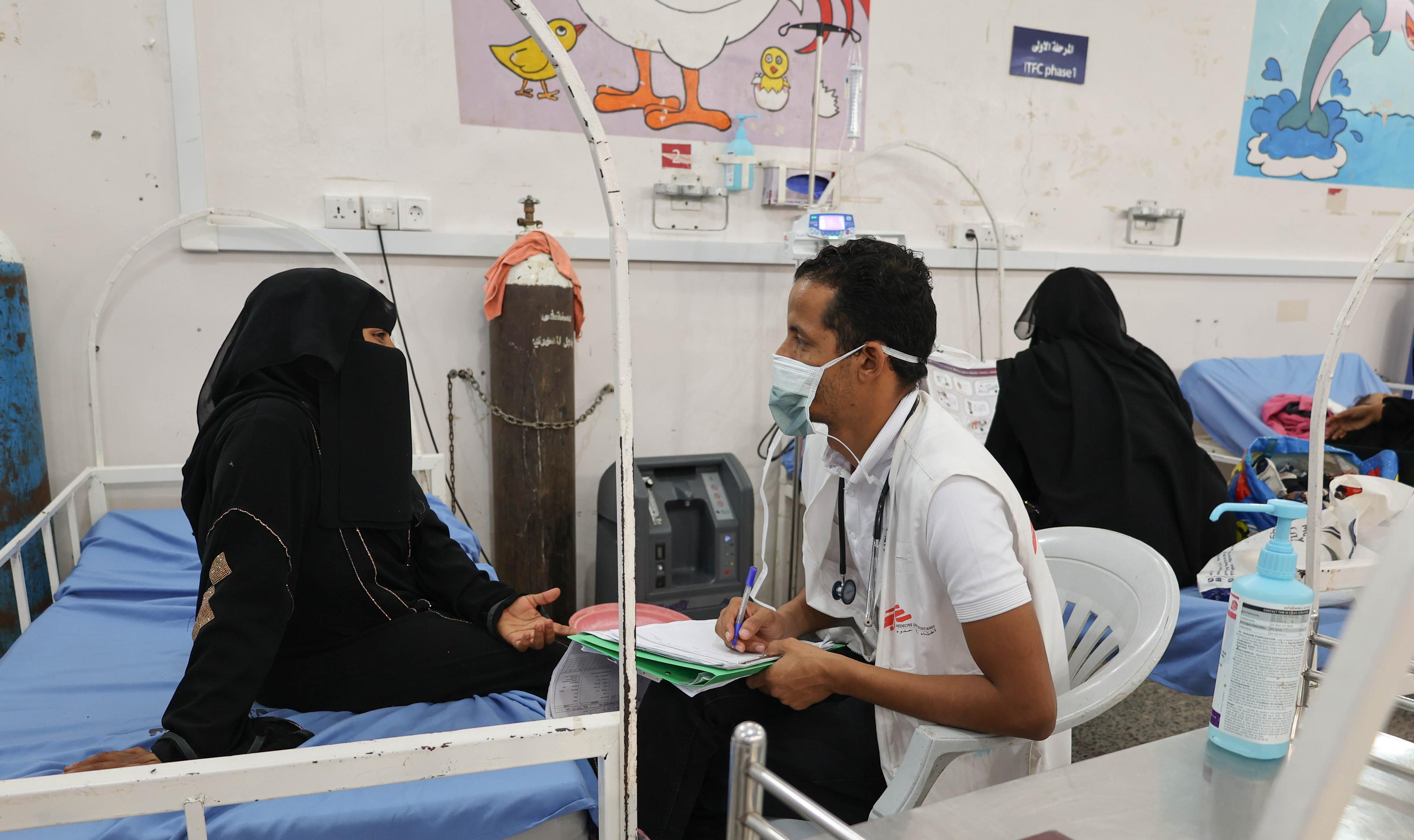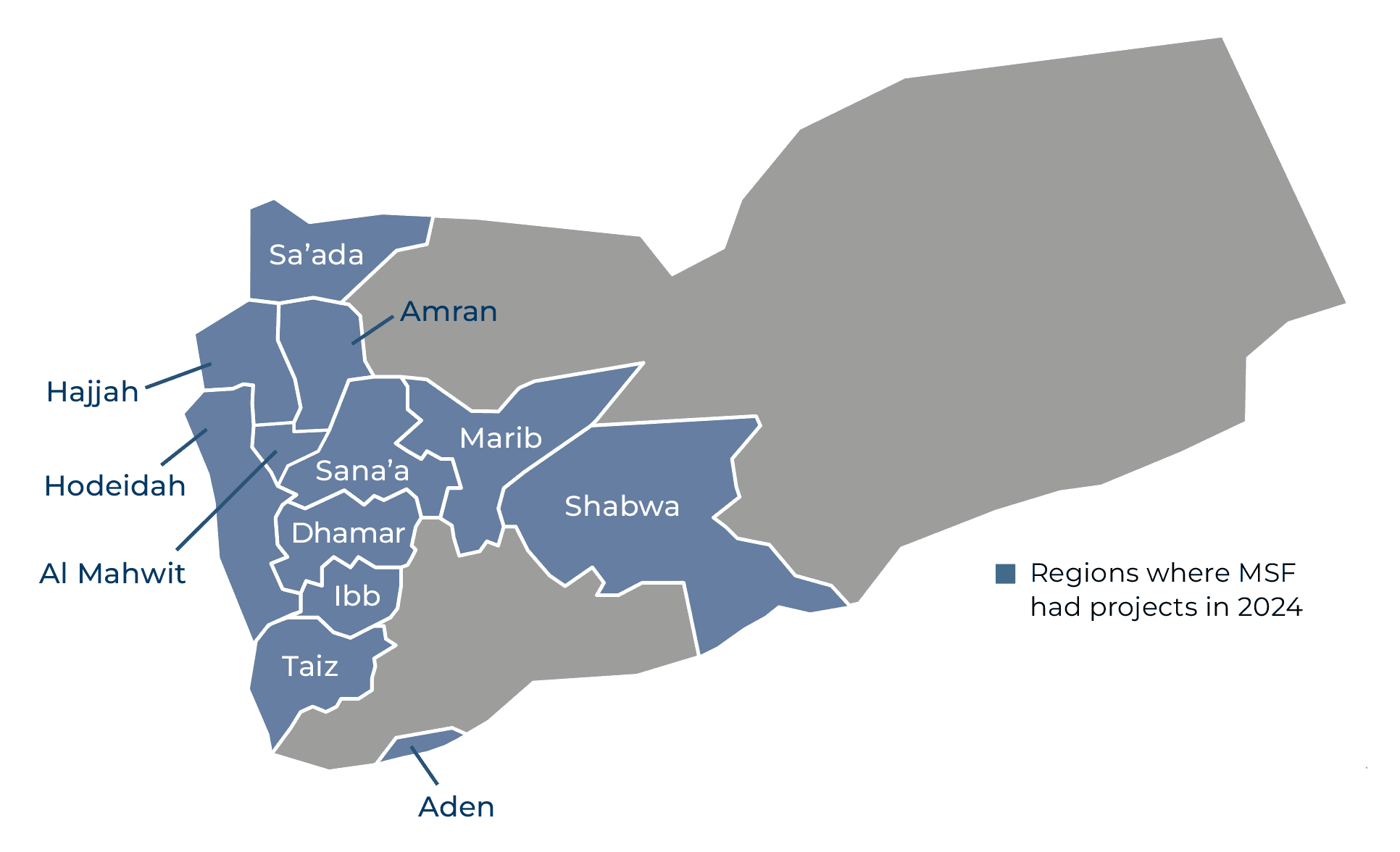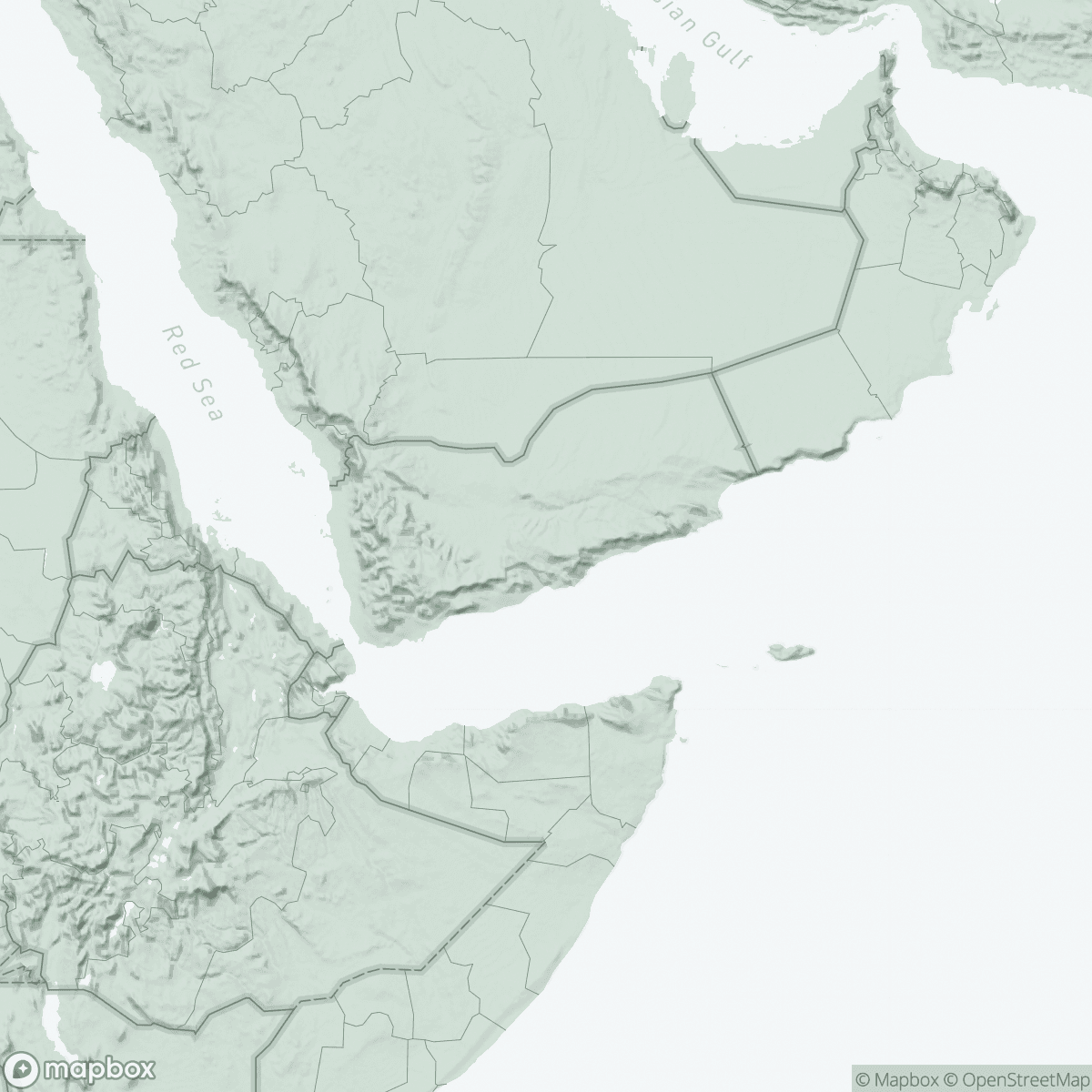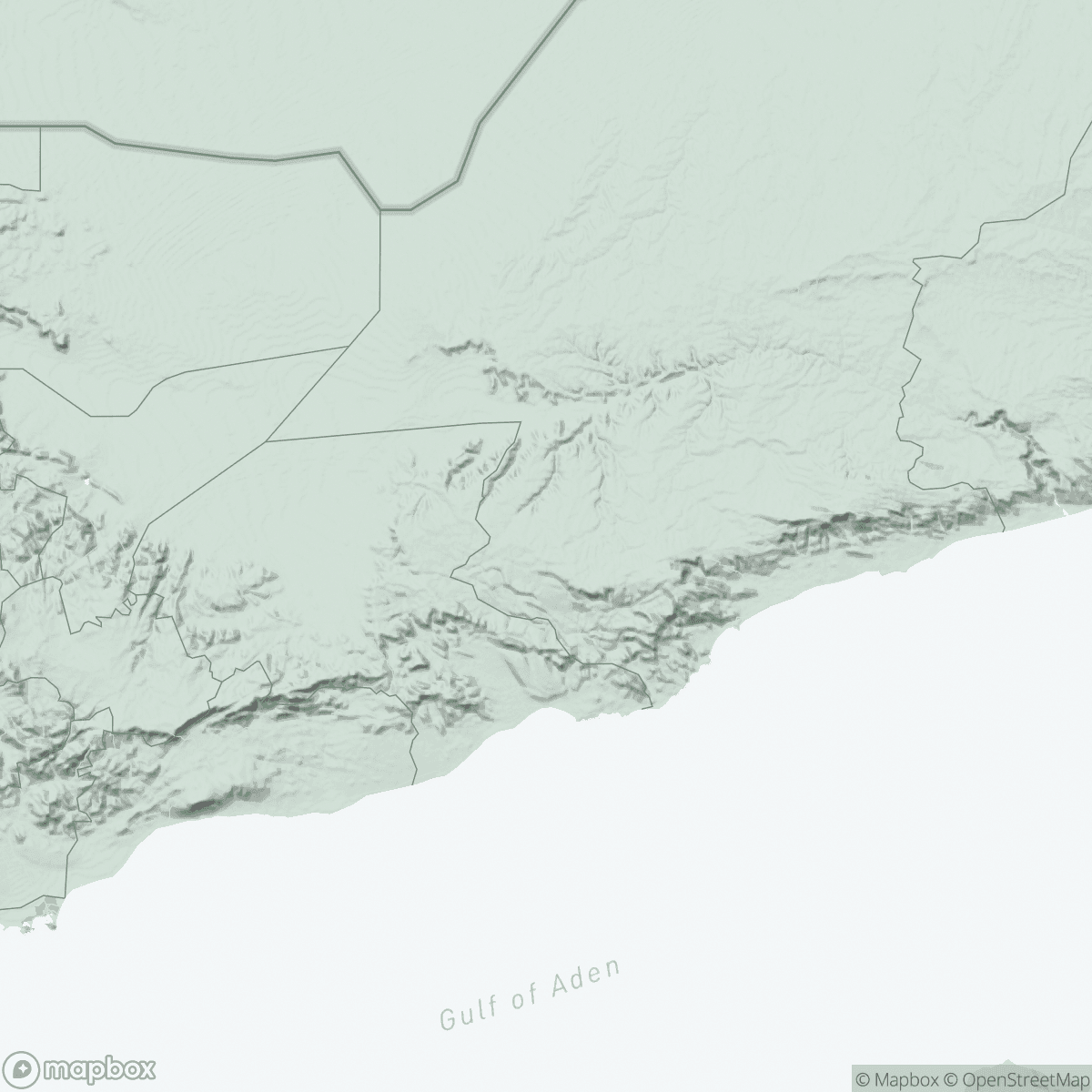
Yemen
In Yemen, Médecins Sans Frontières (MSF) continued to deliver lifesaving care to people affected by ongoing conflict and instability, and responded to a steep rise in vaccine-preventable diseases.
Our activities in 2024 —
outpatient consultations, including 100,400 for children under 5
people admitted to hospital
people treated for cholera
births assisted, including 5160 caesarean sections
individual mental health consultations
children admitted to inpatient feeding programmes
people treated for measles
malaria cases treated
Yemen is experiencing one of the worst humanitarian crises in the world, with millions of people displaced and in need of assistance.
In 2024, regional armed escalations following Israel’s war on Gaza directly impacted the country.

The lack of healthcare in large areas of the country, and the worsening economic landscape, are having severe repercussions on people’s health and living conditions. As a consequence of the armed escalations in the Middle East and the Red Sea crisis, key infrastructure, such as Hodeidah port, Sana’a airport, as well as power stations and storage structures vital for delivering much-needed humanitarian aid, have been badly damaged by airstrikes.
In 2024, MSF worked in 17 hospitals across 12 governorates, providing medical services such as emergency, maternal, and paediatric care, nutrition support, and specialised surgery. To facilitate access to basic healthcare at community level and reduce the strain on hospitals, MSF supported more than 10 basic healthcare centres with staff training and incentives, donations of medications and medical supplies, and rehabilitation works.
In addition, we provided emergency healthcare and donations of blankets and hygiene kits in Mahweet and Marib governorates during flash floods in the second half of the year.

